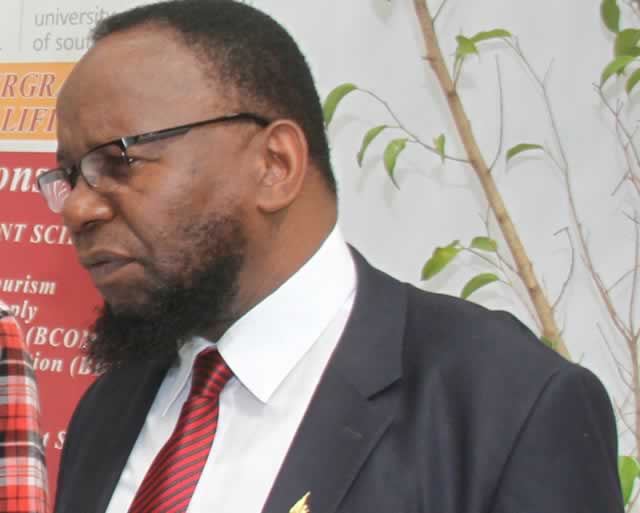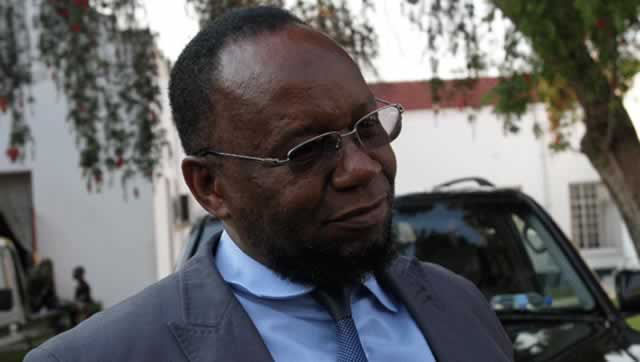Editorial Comment: Rid schools of untrained teachers without delay

Untrained teachers have historically rendered an immense contribution to the development of our education system but their time is now up.
We have relied on them because the country does or did not have enough trained educators to man all schools. In some cases qualified teachers have refused to work at certain schools citing hostile conditions, among them their remoteness or fear of disease. Binga in Matabeleland North has been rejected because of its remoteness and underdevelopment, while parts of Gokwe in the Midlands have suffered because of their being malarial. To plug the gap, the government has deployed uncertified teachers.
But by January 2016 they will be out of work as the government intensifies efforts to raise teaching standards and create room for unemployed trained educators to secure jobs.
An estimated 20,000 temporary teachers are set to lose their jobs as the government would implement the Teacher Professional Standards (TPS), the Minister of Primary and Secondary Education Lazarus Dokora said on Thursday.
“As soon as the TPS document comes into effect next year, the quality of teachers in schools should improve,” he said.
“My ministry has finalised the TPS. The TPS documents are seven altogether and they have three descriptor domains which include the knowledge and understanding, skills and abilities and values.”
The minister added that the TPS will also equip teachers with a better appreciation of Zimbabwean culture as it is important to apply the ubuntu/hunhu philosophy.
The plan has been too long in coming not only because of the fact that the continued utilisation of untrained teachers lowers standards, but also that there are hundreds of qualified trainers who cannot get jobs because they are being held by uncertified ones.
It goes without saying that the teaching field is one of the few serious professions where untrained people work formally. It is an anomaly that must not be condoned any longer. A person holding a degree in finance cannot be engaged to work formally as a magistrate, an engineer or a nurse. Zupco cannot employ someone who does not have a licence as a driver.
But the teaching profession has been for everyone. It cheapens the occupation.
Specialised training in any career is critical in terms of maintaining high professional standards, discipline and morale. It ensures that a person does a job that they know about, not knowing about it as they work.
Yes, they will have untutored experience over time, but that theoretical education that someone gains from a teachers’ college or any other training institution is essential. It provides the necessary grounding that helps a great deal when one delivers in the classrooms practically.
Another point worth noting is that many of the people working as teachers but lacking relevant professional qualifications tend to be in the classroom half-heartedly. They simply work because they cannot secure their rightful jobs and that they are desperate to earn some money. As soon as they secure a job for which they trained, they leave immediately. This affects the education of pupils not only in the short term but also in the long term.
Chances are high that a qualified teacher loves his work and is in it with a more long term, focused mindset. He is better motivated because he chose teaching as a career path; he is not forced into it by adverse circumstances.
However, as we pointed out at the outset, unqualified instructors have served us well over the years. Many have served for decades, and acquired the title of “permanent temporary” teachers. We urge these to go back to school and acquire the relevant qualifications so that the pupil, the parents and the government are confident that indeed, the classrooms are manned by persons who went through the mill and were certified as competent to do so.
Teacher training schools are urged to give preference to the veterans. For those who served for, say more than five years consistently, we suggest that a system be put in place for training institutions to recognise that experience, and in their training, exempt them from teaching practice, or limit it to one term. We have seen similar exemptions being considered and implemented at universities for students who have demonstrable formal experience in their field of study. The students provide proof that they have the experience by writing detailed reports that are endorsed by their bosses, enabling them to proceed without the requirement for industrial attachment.
We implore the government to implement the TPS without delay. This will enhance the quality of education students get.











Comments